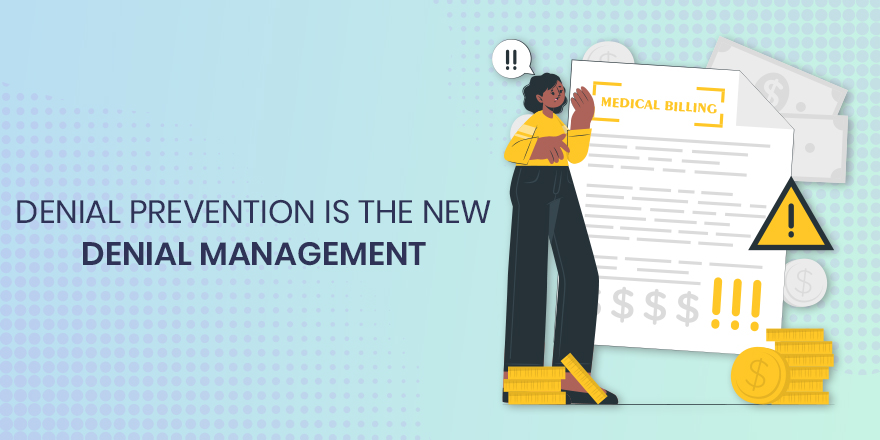
Medical claims denials can cost healthcare providers a lot of money in the healthcare sector. Healthcare organisations now place more emphasis on denial prevention than denial management. In order to avoid claim denials, possible problems with the medical billing process must be identified and fixed. We’ll discuss why denial prevention is the new denial management in this blog post.
saves resources and time
Healthcare providers can spend less time and money on denial prevention. Healthcare providers must invest time and money to challenge medical claims that are denied. Denial prevention works to reduce claim denials, which lessens the need for appeals and frees up resources that can be put to better use providing patient care.
Betters cash flow
Healthcare providers’ cash flow is improved by denial prevention. Payment delays due to claim denials can have an impact on revenue and cash flow. Healthcare providers can improve their financial stability and timely payments by avoiding claim denials.
Improvements to Revenue Cycle Management
In the healthcare industry, denial prevention improves revenue cycle management (RCM). RCM entails controlling the monetary elements of patient care, such as billing and collections. Healthcare providers can streamline the RCM procedure, minimising administrative effort, and enhance financial performance by avoiding claim denials.
Improves Patient Contentment
Patient satisfaction is increased by denial prevention. Patients who have their medical claims refused may be left with unforeseen medical expenditures, which can be stressful and frustrating financially. Prevention of denials contributes to accurate processing of medical claims, which lowers billing errors and boosts patient satisfaction.
Promotes Compliance
Denial prevention makes it easier to follow industry rules and regulations. To safeguard patient privacy and uphold the accuracy of medical information, healthcare practitioners are required to adhere to a number of laws and regulations, including HIPAA. Denial prevention makes sure that healthcare practitioners follow these rules in order to stay out of trouble with the law.
In the healthcare sector, denial prevention has replaced denial management. It promotes compliance with industry standards, improves cash flow, enhances revenue cycle management, and raises patient happiness. It also saves time and resources. To enhance their operations and deliver better patient care, healthcare providers should engage in effective denial prevention methods.
